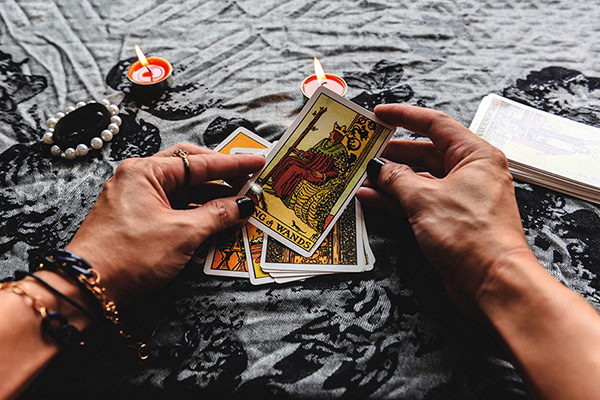social life
Empower Yourself With Mindfulness
 Is your inner guidance system out of sync? Do you feel out of alignment with your higher self? Out of touch with the universal flow? Disconnected from Spirit? You are not alone.
Is your inner guidance system out of sync? Do you feel out of alignment with your higher self? Out of touch with the universal flow? Disconnected from Spirit? You are not alone.
In today’s fast-paced, hyper-connected world, where digital information is exchanged at an unprecedented rate, finding a moment of stillness and spiritual connection can feel like chasing a mirage in the desert.
Our modern lives are characterized by a relentless barrage of demands on our time and attention, both personally and professionally, and a constant stream of distractions from every conceivable angle.
The cacophony of app alerts, text messages, emails, social media updates, and the pressure to stay “in the loop” can be overwhelming. Yet we remain perpetually tethered to our screens, constantly on edge and spiritually disconnected.
Being constantly busy has become a toxic badge of honor in our society. Being on the go and constantly multitasking has become associated with success and prosperity. But this obsession with busyness is a poisoned chalice. Yes, we may get more done, but in the long run it comes at a great cost to our mental and physical health, as well as our spiritual well-being.
Work-Life Balance For The Single Parent
 Single parents face many daily challenges and can easily feel overwhelmed. This is especially difficult when juggling childcare, household responsibilities, and your career or business.
Single parents face many daily challenges and can easily feel overwhelmed. This is especially difficult when juggling childcare, household responsibilities, and your career or business.
It is undoubtedly important to maintain a healthy work-life balance in your life, but it is easier said than done. How does one balance work, family, life, and love as a single parent in the busy world we live in?
Here are some simple strategies for single parents to achieve a better work-life balance.
Work-Life Boundaries. The first important step is to set boundaries between your work and home life. I find that this is often a key element that is missing in the lives of many of my clients.Without clear boundaries between work and home, it is very difficult to be fully present and focused on one or the other at any given time. Without defined boundaries, the single parent is constantly straddling two worlds.
Creating work-life boundaries simply means not mixing business with pleasure. You designate specific times and activities for work and specific times and activities for spending time with your children. This means no thinking about work, no work-related texting, no checking email, and no taking phone calls outside of your designated work time.
Learning To Honor My Higher Self
 Have you ever had a conversation with someone that made you feel very uncomfortable, upset, even angry, to the point where you could feel their negative, toxic energy attaching to you? I certainly have, more times than I care to remember.
Have you ever had a conversation with someone that made you feel very uncomfortable, upset, even angry, to the point where you could feel their negative, toxic energy attaching to you? I certainly have, more times than I care to remember.
This feeling of extreme discomfort is usually a clear sign that the interaction you are having with this person is going against your higher self. Yet, even though we are aware of this on some level, we often fail to do what is right for our highest good and instead continue to interact with the energy thief in question to our own detriment.
Truth be told, I have been guilty of this myself many times. Only to face the aftermath of unhappiness and disappointment for not honoring my higher self.
I have recently become increasingly aware of this personal failing and have been actively working to identify my motives for putting and keeping myself in these situations.
I have come so far in my quest for increased self-awareness and spiritual growth that I am willing to explore and deal with the deepest corners of my soul-self. True enlightenment is not only about our brightest achievements, but also about our darkest inner shadows.
Grandma Will Wear Her Big Girl Boots!
 I recently discovered a website where you can “rent a friend”. It made me wonder, why would anyone need to rent a friend? Isn’t making friends a natural thing?
I recently discovered a website where you can “rent a friend”. It made me wonder, why would anyone need to rent a friend? Isn’t making friends a natural thing?
Normally, people who have something in common or enjoy each other’s company tend to gravitate toward each other. Even when attending a large social gathering, people tend to find like-minded people in the crowd to interact with. So, why in the world would anyone ever need to ‘rent’ a friend?
Well, the site had a list of occasions when one might want to purchase this type of service. Some of the things on the list included hiring a companion to be your plus one at a wedding, or to go to the theater, sightseeing, dinner, or even traveling abroad.
Essentially, the service connects people with common interests.
Then I wondered, are there really enough people who would use such a service to make it profitable? Apparently, there are and I should not have been be surprised. Our social life increasingly depends on digital technology.
Most of us are lucky if we can count on one hand the friends we can invite to join us on some of our adventures, let alone the few close friends we can count on in good times and bad. It is rare to have friends who have the time, money, or energy to do fun things with us on a regular basis.
The People In Your Tarot Court Cards
 In a psychic tarot reading, several court cards, also known as ‘people cards’, may come up in a spread. This can be challenging and even confusing, because the reader must now interpret not only the situational influences and circumstances revealed by the spread, but also the other people who are playing a role, or may still be involved in the matter.
In a psychic tarot reading, several court cards, also known as ‘people cards’, may come up in a spread. This can be challenging and even confusing, because the reader must now interpret not only the situational influences and circumstances revealed by the spread, but also the other people who are playing a role, or may still be involved in the matter.
There are many different approaches to interpreting tarot court cards, but my personal preference is to associate each card with an astrological sign of the zodiac.
There are 78 cards in a traditional Tarot deck. The first 22 cards are the Major Arcana and the remaining 56 are the Minor Arcana. The Minor Arcana are divided into four suits that correspond to the four classical elements of Air, Fire, Water, and Earth.
The element of Air is typically represented in the deck design as swords, feathers, birds, or clouds. The element of Fire is usually represented as wands, batons, or staffs. The element of Water is represented by cups, chalices, bowls, or mermaids. And the element of Earth is represented as pentacles, coins, or stones.
Sixteen of the 56 minor arcana are the court cards. The court cards of each suit represent people who embody the personality, traits, or influence of the associated element. Occasionally, a court card may also represent someone who fits the physical appearance of a particular person card as depicted in the card’s design.
Friends For A Reason, A Season, Or A Lifetime
 I recently reconnected with a family friend with whom I had a very close relationship about three decades ago. She was like a mother figure in some ways, even though she was only about 12 years older than me at the time.
I recently reconnected with a family friend with whom I had a very close relationship about three decades ago. She was like a mother figure in some ways, even though she was only about 12 years older than me at the time.
She is a very caring and nurturing person and was always there for me when my own mother was physically or emotionally unable. Her door was always open and she always had many people around her. After working in retail for many years, she changed careers to become a full-time caregiver, which she loved. After she retired and her husband passed away, she continued to be very active and had a very vibrant social life.
But during the Covid-19 pandemic, like many people her age, she experienced intense isolation and trauma. We spoke frequently on the phone during this time, and she was very much looking forward to the restrictions finally being lifted.
However, when the worst was over and most restrictions were lifted, her group of friends remained afraid to go out. Some of them even developed agoraphobia, a type of anxiety disorder that causes people to experience extreme, irrational fear of public places and unpredictable situations that they imagine could cause them harm, panic, or helplessness.
My dear friend was deeply affected by this. Seeing all her friends again was one of the things that kept her strong and hopeful through the chaos of the pandemic. But now she felt she had lost her tribe (beyond her family, who all have busy, demanding lives of their own and live several hours away). Fortunately, she is a determined soul who will not easily accept defeat and apparently she is gradually getting more of the old gang together for their usual fun meet-ups!
